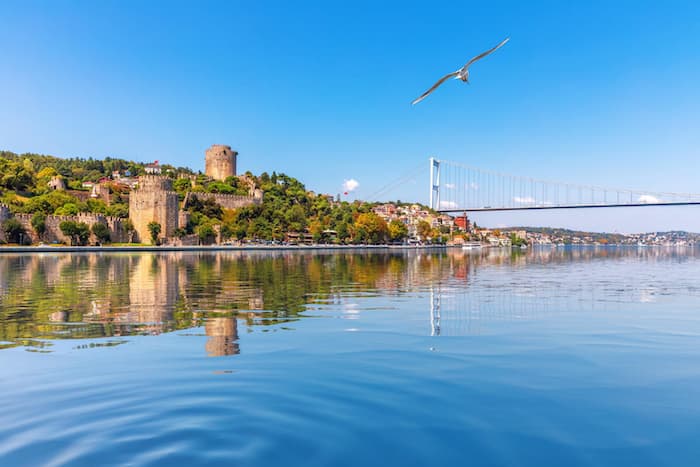Istanbul has been connected to significant political, religious, and artistic events for more than 2,000 years due to its strategic location on the Bosphorus peninsula between the Balkans and Anatolia, the Black Sea and the Mediterranean. The ancient Hippodrome of Emperor Constantine the Great, the Hagia Sophia from the sixth century, and the Süleymaniye Mosque from the sixteenth century are just a few of its wonders that you can explore in depth and multiple times if you move to Istanbul and start living in a fully furnished apartment by Cabriole Homes on either the European side or Asian side of the city.

People may have lived in what is now known as Asian Istanbul as early as 3000 BC. Byzantium, the Greek name for a city on the Bosphorus, was eventually founded by Greek immigrants under the leadership of King Byzas in the seventh century. After visiting a Delphin oracle, which advised him to reside across from the "country of the blind ones," Byzas chose the location. Byzas came to the conclusion that past inhabitants had to have been blind in order to have missed this fantastic spot at the mouth of the Bosphorus strait. Byzas' choice to settle in Istanbul was fortunate because history has revealed the city's importance goes well beyond what these early Greek settlers may have imagined. Byzantium is the name that Byzas gave to the city. It was incorporated into the Roman Empire in the first century BC, and Byzantium was designated the capital of the Eastern Roman Empire by Emperor Constantine the Great in 306 AD. The city took on the name Constantinople after that.
The city was taken over by the Roman emperor Septimus Severus in 193 AD, and the Romans maintained control until the fourth century AD, when Constantine the Great made Byzantium the capital of the entire Roman Empire and gave it his name: Constantinople. After the fifth century, the Eastern Roman Empire was known as the Byzantine Empire. Like Rome, the city was formed atop seven hills surrounding it. Early Byzantine monarchs, notably between the fourth and sixth century, when the city's population was above 500,000, flooded their capital with artifacts from antiquity. City devastation resulted from riots in 532, under Justinian I's rule. However, it was reconstructed, and magnificent buildings like Hagia Sophia serve as testament to the Byzantines' glorious past. The Golden Horn is also of historic importance and is definitely a must visit place for new residents living the Cabriole way in the city.
An eternally significant city in Turkey
Istanbul's recent history is rife with intrigue and sieges; it was under siege by the Arabs in the 7th and 8th century and by the Barbarians in the 9th and 10th, but the Fourth Crusade, which governed from 1204 and 1261, was responsible for all the wealth's destruction and looting, dominated the city. Constantinople never recovered its prior wealth or power after this.
With a rich history and multiple instances of battles during the period of the Ottoman Turks, Constantinople was so weakened by virtually continual invasions and warfare in 1453 that Sultan Mehmet II's Ottoman Turks were able to take control of it. As the third and final capital of the Ottoman Empire, Istanbul was renamed. It served as the focal point for military operations that would significantly expand the Ottoman Empire. With a population of about 500,000, Istanbul was a significant center of culture, politics, and commerce by the middle of the sixteenth century. Ottoman sovereignty persisted until it was overthrown in the First World War, which led to the allies occupying Istanbul.
Kemal Ataturk relocated the capital to the city of Ankara after the Republic of Turkey was established in 1923 as a result of the War of Independence. Istanbul is currently Turkey’s largest city and has long maintained a vital role in the country’s past, present and future as the capital in the ottoman and roman periods and now a cultural and geographic hub in the world with a strategic location and access to the Black Sea as well.
Stay in Istanbul for a short or long time but for however long you stay, experiencing this exciting history up close is going to be a highlight in your life.